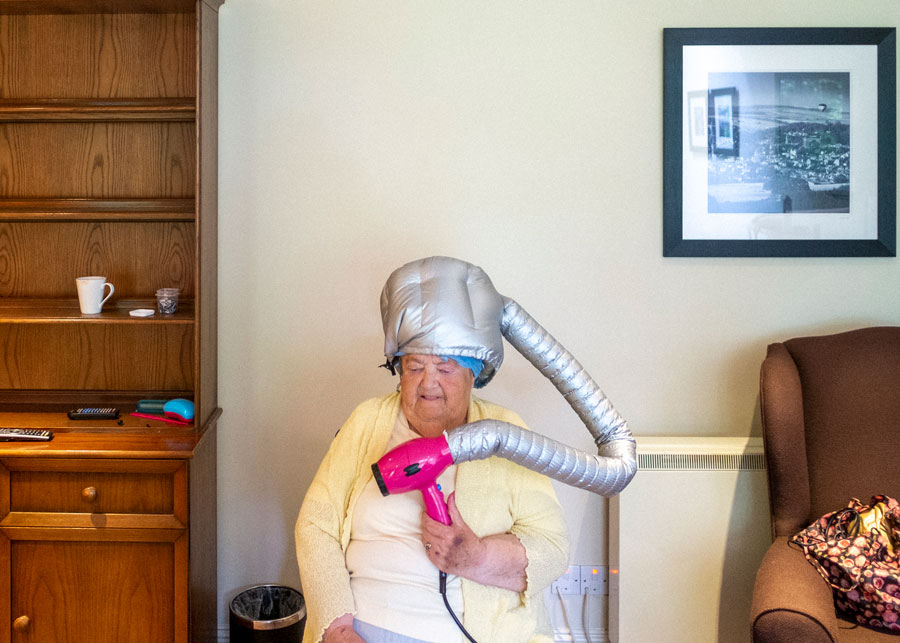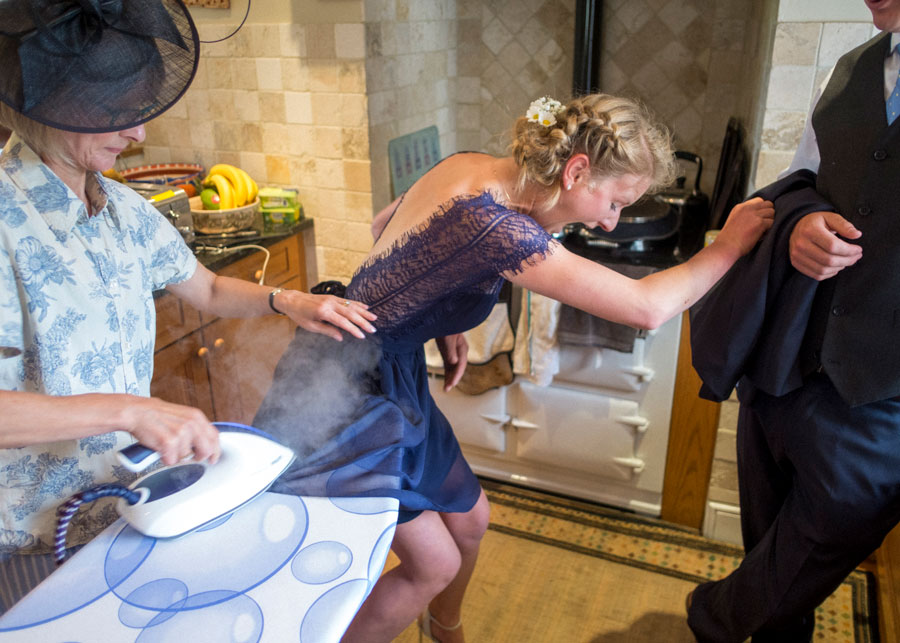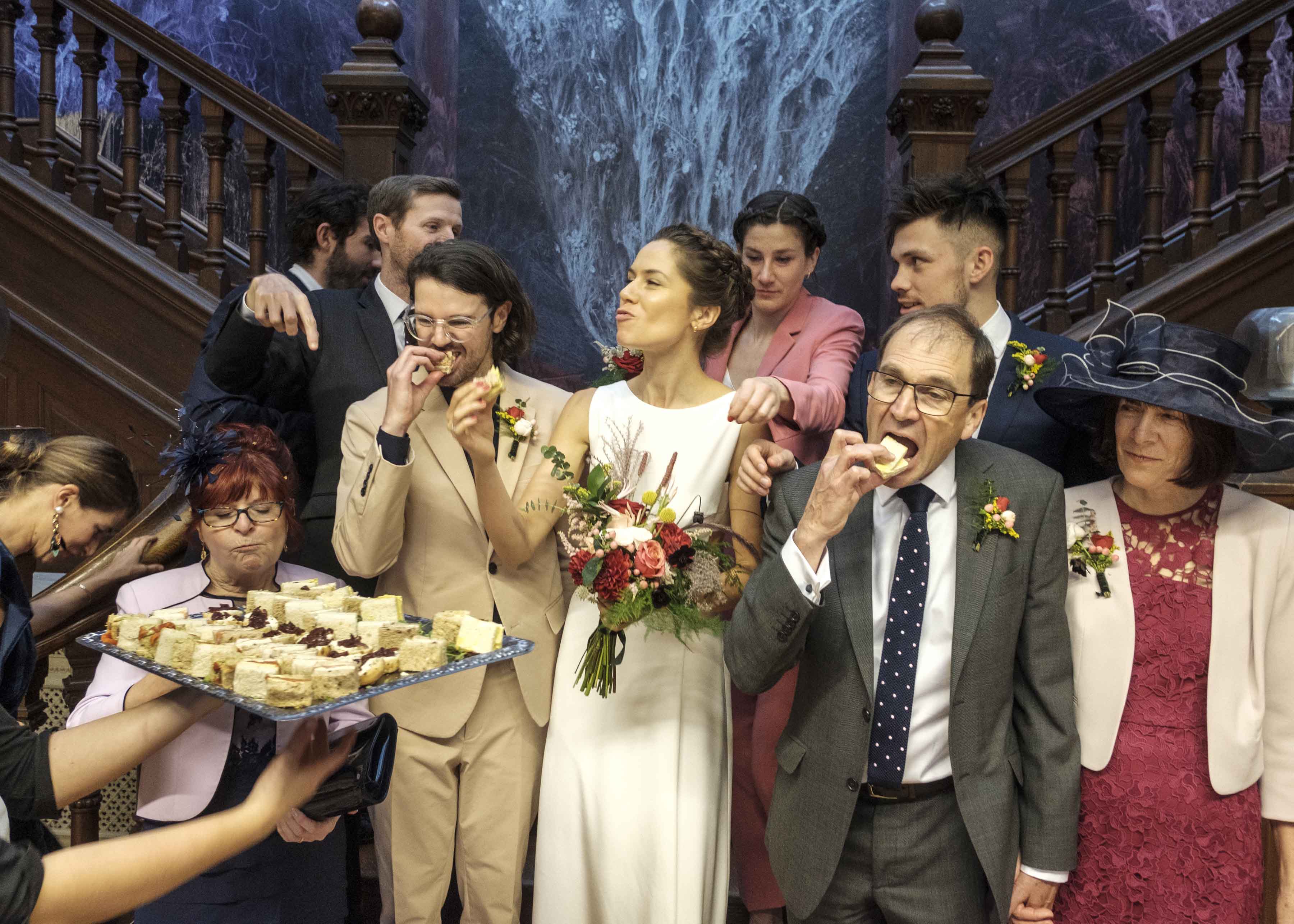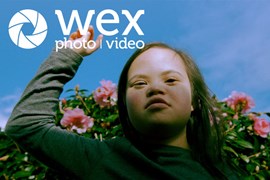
Ian Weldon
- Job title: Photographer
- Education: “A couple of O-levels”, college access photography course (not completed)
- Website: ianweldon.com
- TikTok: @ianjweldon
- Related jobs: Photographer, content creator, retouching, photography assistant
Ian Weldon is not a wedding photographer. At least, that’s what he tries to tell people. Sure, he photographs weddings – quite a lot, actually, and he’s very good at it. He has developed a singular style of capturing wedding images, one that stands out immediately from typical wedding photography.
Though he’s reluctant to use the word ‘documentary’, his images do have that feel – there’s a spontaneous, unplanned sense of intimacy to them. They don’t feel like ultra-posed, ultra-processed ‘wedding’ photographs. They feel like images that a skilled and observant photographer happened to capture, on a day that just happened to feature a wedding.
Because Ian’s not a wedding photographer. But he is a photographer who shoots weddings, and his route to that destination has been similarly unconventional. So, in a break from our usual format, this interview is all about how not to become a wedding photographer, and how Ian continues to enjoy tremendous success at not being one…

Jon Stapley: Thanks for speaking with us, Ian. When did your interest in photography first arise?
IW: Photography had been around when I was young, in more of a family, amateur sense. I didn't really take that much interest in it until I was 29. Having already had a plethora of other jobs – having been in the army, a window salesman, a truck driver and everything else in between – I wanted to do something that would fulfil me a little more.
JS: So how did you get started?
IW: I went to college to do an access course on photography. That was meant to have been a three-year course, but I did about eighteen months. My girlfriend at the time, her dad had a pub, and there was an outhouse; I just whitewashed the walls in there, stuck some lights up and opened a portrait studio. I never finished the course. The portrait studio limped along for maybe three or four years, until I realised that I wasn't getting any better as a photographer. I was buying more and more gear, and that didn't seem to make any difference to the output.
I started to become more interested in photography itself and where it came from, its history. I became a little bit obsessed. I think that once we start looking at photography’s history, and once we start building our own understanding of what it is, we can then apply that to the genre that we're working in.
I realised I wanted to photograph more social documentary work and do longer term projects. And one way to fund that was to shoot weddings. I’d had many requests previously to photograph weddings, but it was perceived at the time – we’re talking 20 years ago now – as the bottom rung of photography. When you first get into shooting weddings, and somebody says they're going to give you £300 or £500 to photograph a wedding, it seems like a lot of money. But then you realise – hang on a minute, that's not a lot of money for the work that I'm putting into it, and how much the gear costs, and how much time I’m giving to it.
With weddings I found – very quickly – that I had other ideas about what I thought photography was and how it should be done. Wedding photographers are a completely different beast; they have to constantly change with the times and keep up with modern trends. And I just found that kind of thing exhausting. That's not really how my brain works.
As I started photographing weddings, I was thinking, this doesn’t work for me, it doesn’t make any sense. Why am I not over there photographing that, or over here photographing this? So, during the times I wasn’t giving in to client expectations, rather than sitting around doing nothing, I would just go and photograph the wedding as if I was a documentary photographer.
I started showing less of the work that was traditional wedding photography, and more of the… I don't want to call it a documentary style, because it's not really. It's my response to the subject, just the way that I see it. I'm really photographing my relationship to the subject, rather than the subject itself.

JS: When did it start to feel like it was really working as a career – was there a moment when things “clicked” as it were?
IW: Once things started to roll, I was starting to get booked, and people were saying to me, “We want you to just come and do what you do for us.” I think that was the point where I realised that I wanted to continue shooting weddings, and also to build up that body of work. I felt that what I was doing was my contribution to photography, and it was a contribution that hadn’t been done in this way before.
This is a representation of weddings, photographed by me, over however long it goes on for. So rather than the idea that I’m a wedding photographer, it’s more than this is a long-term project, something I will continue to work on. And I enjoy doing it – I get to travel the world, and when I get paid, I get paid okay.
JS: Have there been difficult or challenging moments in your career? How have you overcome them?
IW: It's always been a challenge to stay true to yourself within an industry that is focused on current trends. And even after fifteen years of photographing weddings, I still feel there is a pressure to conform.
When I first really started to show the work that I'm known for, there was a lot of kickback from the wedding photography community. “You can't do this… you can't cut the bride's head off… you can't photograph people like that.” But I’d say, hang on a minute, there are no rules here. You're only doing it the way that you've been taught to do it, or the way that it's expected to be done. I’m looking at this from a different perspective.
Obviously, the other challenge is finding people who are happy to have their day photographed in the way that I do. I think you just have to keep being true to yourself, and keep doing your own thing. If I start being concerned about what other people think of the work that I'm doing, then I cease to become an artist.
JS: I do think that’s key to the images – how unapologetic that vision is. It feels to me like if ever you tried to compromise by flattening it and doing something more conventional, it would fall apart. It wouldn’t be a singular vision.
IW: I have many times had photographers ask me, “How do I shoot in your style? I want to shoot in a documentary style.” It's hard for me to explain to somebody who's running a business that it's not a style; this is a consequence of my study and practice and understanding of what photography is. The thing that comes out the other end is not, for me, the important part. It’s the process, and the understanding, and what I’ve learned about myself. The photographs are just kind of a consequence of that.

JS: We like to end these interviews by asking people what’s the one piece of advice they’d give to those aspiring to a similar career – but I feel like in your case it’s probably that? Not to pre-empt you, but it feels like if there’s one lesson you’ve learned, it’s to stay true to your vision.
IW: Yes, absolutely. I think that it's really important. But I mean, for many wedding photographers, it's not important. It doesn't matter. You can just keep doing the same thing that you're doing – keep booking your clients, shoot seventy weddings a year, make a boatload of money, go on workshops and learn how to do the new lighting thing that everybody's doing. If that's what you want to do, go and do that.
From my perspective – this is for anybody who wants to make work that represents them as an artist, rather than just a photographer. Photography in itself isn't an art; painting isn’t an art. It's the artists that make them an expression of ourselves, using the medium. If you want to do that, then I would say that you need to understand at least some photography history. Then, take your own understanding of what photography is, and apply that to the genre in which you're shooting.
View this post on Instagram
About the Author
Jon Stapley is a London-based freelance writer and journalist who covers photography, art and technology. When not writing about cameras, Jon is a keen photographer who captures the world using his Olympus XA2. His creativity extends to works of fiction and other creative writing, all of which can be found on his website www.jonstapley.com





